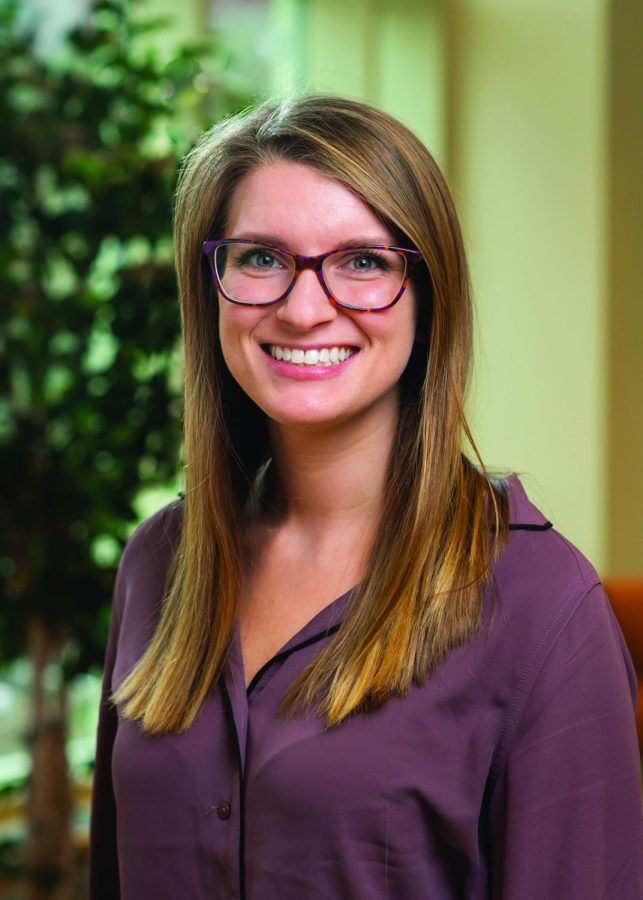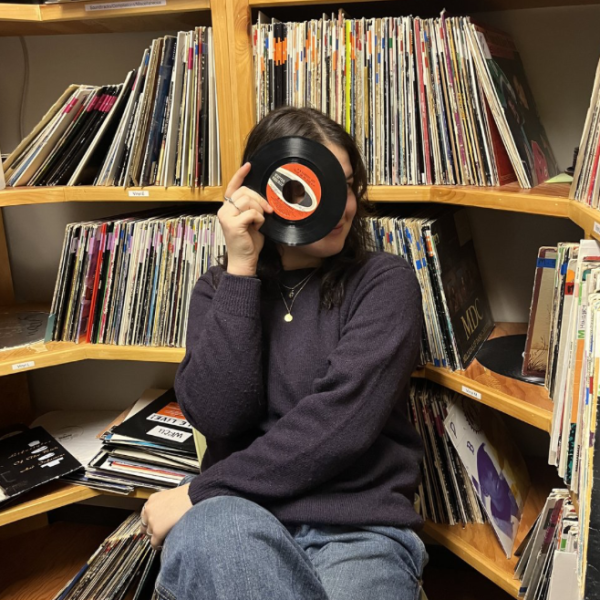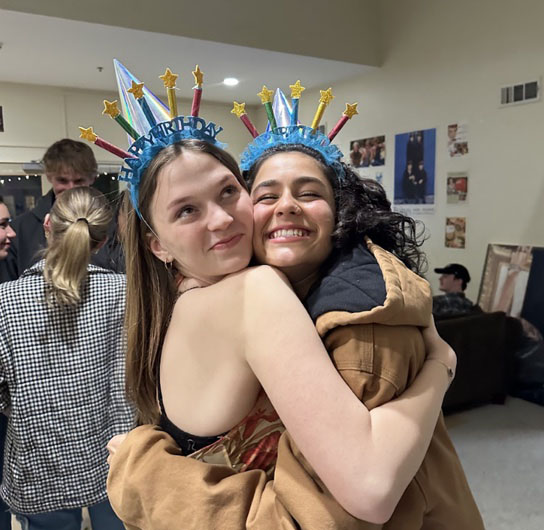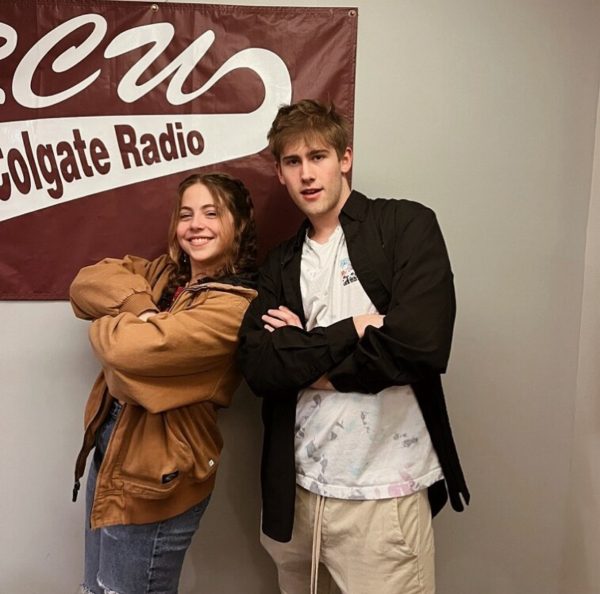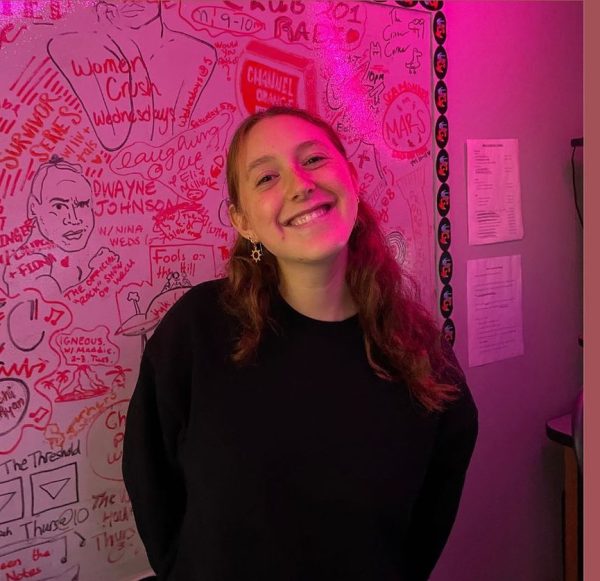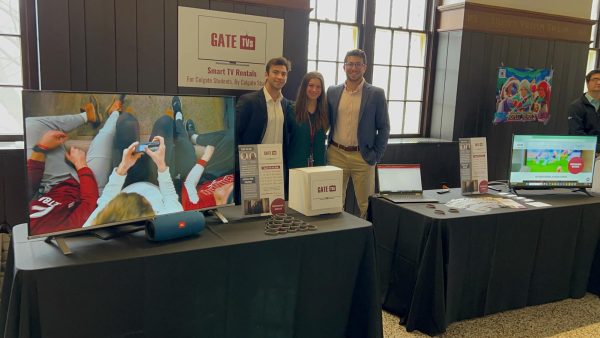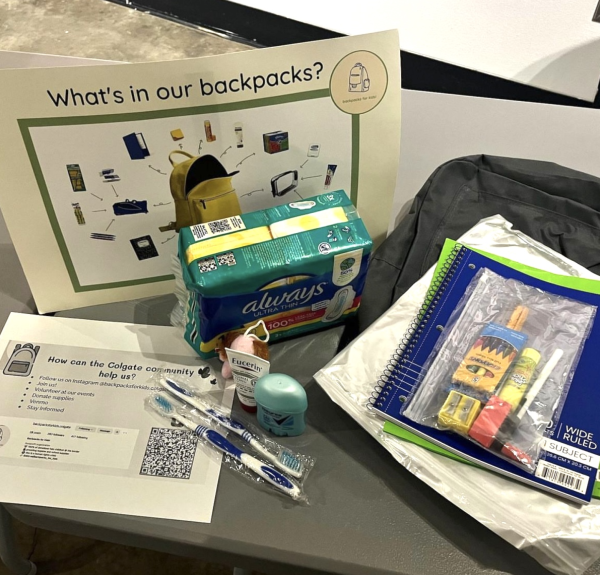Sust is a Must with Pamela Gramlich
Pamela Gramlich started working at Colgate a little over four years ago as the Program Coordinator of Sustainability and Environmental Studies and is now the Assistant Director for the Office of Sustainability. She is most involved with the Sustainability Office interns who apply for the position and then work for the office.
“The biggest piece of my job is overseeing the student interns and making sure they have a really valuable experience that is also equally impactful on the institution,” she said. “I’m there for feedback, to provide them with resources, for advice and guidance, but from my perspective, it’s really great for them to be able to take the lead and create programs that they feel are going to be impactful.”
Gramlich also interacts with the interns off-campus and will sometimes take them to the Adirondacks, one of her favorite places to spend some time away from Hamilton, for hikes and other activities.
“We’ll go and stay at Camp Colgate in the Adirondacks and a lot of times we’ll do Ampersand,” she said. “[And] I love to spend time outdoors, so over the summer [I went] paddleboarding, kayaking, hiking, that kind of stuff. I went skiing a few weeks ago for the first time in 10 years which was kind of a disaster but maybe I’ll try it again.”
Beyond working with the interns, Gramlich spends a lot of her time updating current programs in addition to developing newer ones.
“Right now we are working to create an Oak Event Certification program that will allow people to complete an application that will indicate different sustainability measures and how sustainable their event might be,” Gramlich said.
This initiative will hopefully also extend to virtual events, using a very broad definition of what “sustainable” means. There are also several ways for students to earn P.E. credit while learning about sustainability. These include the “Climate Conversation” course which is a five week discussions course, facilitated by the interns, to earn one credit in addition to the “Sustainability 101” program that is an online learning module where students can earn passport credit. Looking to the future, there are several other programs that will open back up later in the spring that students can partake in.
“We have our Green Bikes Program which is a bike rental program where students can rent bikes for $15 a month and have the bike to [themselves]. That’ll open back up when the snow melts,” she laughed. “We’ll also have 13 Days of Green come up from April 10 through [April] 22. It’s always the 13 days leading up to and including Earth Day.”
Additionally, campus officially became carbon neutral on Earth Day in 2019, but Gramlich is still looking to reduce the university’s carbon footprint further.
“We have reduced our on campus carbon emission a ton. Actually, we measure it in tons, so more than a ton,” she laughed. “We measured them for the first time in 2009, and we’ve been using that as our benchmark, and every year we reinventory our carbon emissions.”
In 2019, the University’s carbon emissions were about 46% lower than in 2009, but that number jumped to closer to 60% last year because of the pandemic. Anything that cannot be reduced because it would interfere with the school’s academic mission, such as employee commuting or air travel, are invested in high quality carbon offsets so the University can take financial responsibility for the carbon that cannot be reduced on campus. Other components of sustainability that go beyond carbon emissions are reported in a STARS report by a third party organization called the Association for the Advancement of Sustainability in Higher Education (AASHE) which sends a score that can be compared with other universities as well as identify schools with successful programs.
“We have been, typically, kind of a leader in this space. Colgate does a really good job compared to a lot of other colleges and universities,” she said.
Gramlich also wanted to emphasize that there is constant room for improvement, so she and the interns have also begun to focus more of their attention on the issue of waste and recycling with specific attention towards single use plastics and proper waste management to avoid contamination of recyclable materials.
“A lot of work that the interns are doing is focused on either educating people about waste and recycling or trying to figure out what we can do within our buildings and across campus to make it easier for people to do the right thing. We know that we have a lot to do on the University side but then we also need to really focus on trying to change the culture that is so focused on consumption and convenience,” she said.
Gramlich does think that the pandemic put some of the initiatives back a few steps, particularly with the increased use of single use products, but believes she has the support necessary to get back on track. However, while COVID-19 has hindered some, Gramlich also believes that the pandemic has been an opportunity to push the boundaries of what can be done and how to go about doing it.
“[COVID-19] has actually been a really great opportunity for creativity. We’re able to think through how we have just been… relying on the same types of programs in the past and doing them again and again,” she said.
Last semester the office promoted a campus cleanup and changed the approach of registration and delegation which had surprising and positive results.
“People were able to register as an organization or as a group of students within their family unit. It was beneficial because it has actually maybe brought more people into the sustainability conversation,” she said. “This something that we will probably continue to do in the future because it brings other people into the conversation, [and] into the mix, who maybe wouldn’t normally get involved and also allows sustainability to be something that you can bond over.”
She thinks this type of approach will also combat Zoom fatigue which the office has been cognizant of and, as a result, has avoided virtual presentations and events for the most part. Beyond attending these events, being a sustainability representative as a first-year, or applying to become an intern are currently the only ways students can be directly involved with the office. However, Gramlich and others are currently working on more ways for students to become involved without needing to make as big of a commitment.
She also wanted to stress the intersectionality of sustainability, and the importance of having conversations surrounding the topic more often.
“Something that I always like to highlight is [that] I’m available to people. If people have questions or concerns they can get in touch with me. I can sometimes be a little slow to respond to emails, but I usually get to them,” she said. “I am happy to help to make campus more sustainable and a better place. Climate change and a lot of environmental issues are also justice issues, and I would love to have more conversations with folks around campus about that.”
Many of the actions taken by both the students and the University have direct impacts on the environment, and on the effectiveness of sustainability on campus. Arguably more important is the impact that these choices have on other, larger social issues, which is something Gramlich hopes more people will begin to discuss.


